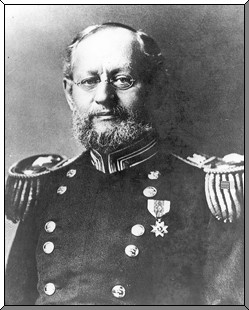|
Parli Pro
Parli Pro is a shortened name for the National FFA Organization Parliamentary Procedure Career Development Event. The FFA Parliamentary Procedure Contest is based on a two-part demonstration of parliamentary procedure knowledge, a knowledge test, and an 8 to 10 minute, depending on the state, demonstration of parliamentary law. Six students form a team who demonstrates a local FFA Chapter meeting. A single motion is handled as in a real meeting. Each team member is given a specific topic or motion in which he and she is to perform (i.e. to refer a matter to a committee, postpone definitely, extend limits or debate, appeal, etc.). Contestants are judged on public speaking skills, debate, proper use of parliamentary procedure, and parliamentary procedure knowledge. The president, or chairman, is judged on the ability to preside, etc. The contest, like other FFA Career Development Events, are held at the sectional, regional, state, and national levels. Most parli pro contests are base ... [...More Info...] [...Related Items...] OR: [Wikipedia] [Google] [Baidu] [Amazon] |
National FFA Organization
The National FFA Organization or FFA is an American nonprofit career and technical student organization, which offers middle and high school classes that promote and support agricultural education. Future Farmers of Virginia (FFV) was founded in 1925 at Virginia Polytechnic Institute, by agriculture teachers Henry C. Groseclose, Walter Newman, Edmund Magill, and Harry Sanders as Future Farmers of Virginia. In 1928, it became a nationwide organization known as Future Farmers of America at the first National FFA Convention, a convention of multiple state organizations similar to FFV. FFA was based on FFV In 1988, the name was changed to the National FFA Organization, now commonly referred to as FFA, to recognize that the organization is for students with diverse interests in the food, fiber, and natural resource industries, encompassing science, business, and technology in addition to production agriculture. FFA is among the largest youth organizations in the United States, with ... [...More Info...] [...Related Items...] OR: [Wikipedia] [Google] [Baidu] [Amazon] |
Parliamentary Procedure
Parliamentary procedures are the accepted Procedural law, rules, ethics, and Norm (sociology), customs governing meetings of an deliberative assembly, assembly or organization. Their object is to allow orderly deliberation upon questions of interest to the organization and thus to arrive at the sense or the will of the majority of the assembly upon these questions. Self-governance, Self-governing organizations follow parliamentary procedure to debate and reach group decisions, usually by voting, vote, with the least possible friction. In the United Kingdom, Canada, Ireland, Australia, New Zealand, South Africa, and other English-speaking countries, parliamentary procedure is often called ''chairmanship'', ''chairing'', the ''law of meetings'', ''procedure at meetings'', the ''conduct of meetings'', or the ''standing orders''. Erskine May: Parliamentary Practice, Erskine May's ''Parliamentary Practice'' is used and often referred to as "Erskine May" in the United Kingdom, and infl ... [...More Info...] [...Related Items...] OR: [Wikipedia] [Google] [Baidu] [Amazon] |
Motion (parliamentary Procedure)
In parliamentary procedure, a motion is a formal proposal by a member of a deliberative assembly that the assembly take a particular action. These may include legislative motions, budgetary motions, supplementary budgetary motions, and petitionary motions. The possible motions in a deliberative assembly are determined by a pre-agreed volume detailing the correct parliamentary procedure, such as Robert's Rules of Order; The Standard Code of Parliamentary Procedure; or Lord Citrine's '' The ABC of Chairmanship''. Motions are used in conducting business in almost all legislative bodies worldwide, and are used in meetings of many church vestries, corporate boards, and fraternal organizations. Motions can bring new business before the assembly or consist of numerous other proposals to take procedural steps or carry out other actions relating to a pending proposal (such as postponing it to another time) or to the assembly itself (such as taking a recess). Purpose A motion is a for ... [...More Info...] [...Related Items...] OR: [Wikipedia] [Google] [Baidu] [Amazon] |
Public Speaking
Public speaking, is the practice of delivering speeches to a live audience. Throughout history, public speaking has held significant cultural, religious, and political importance, emphasizing the necessity of effective rhetorical skills. It allows individuals to connect with a group of people to discuss any topic. The goal as a public speaker may be to educate, teach, or influence an audience. Public speakers often utilize visual aids like a slideshow, pictures, and short videos to get their point across. The ancient Chinese philosopher Confucius, a key figure in the study of public speaking, advocated for speeches that could profoundly affect individuals, including those not present in the audience. He believed that words possess the power to inspire actions capable of changing the world. In the Western tradition, public speaking was extensively studied in Ancient Greece and Ancient Rome, where it was a fundamental component of rhetoric, analyzed by prominent thinkers. Aristo ... [...More Info...] [...Related Items...] OR: [Wikipedia] [Google] [Baidu] [Amazon] |
Robert's Rules Of Order
''Robert's Rules of Order'', often simply referred to as ''Robert's Rules'', is a manual of parliamentary procedure by U.S. Army officer Henry Martyn Robert (1837–1923). "The object of Rules of Order is to assist an assembly to accomplish the work for which it was designed [...] Where there is no law [...] there is the least of real liberty." The term ''Robert's Rules of Order'' is also used more generically to refer to any of the more recent editions, by various editors and authors, based on any of Robert's original editions, and the term is used more generically in the United States to refer to parliamentary procedure. It was written primarily to help guide voluntary associations in their operations of governance. Robert's manual was first published in 1876 as an adaptation of the rules and practice of the United States Congress to suit the needs of non-legislative societies. ''Robert's Rules'' is the most widely used manual of parliamentary procedure in the United States. I ... [...More Info...] [...Related Items...] OR: [Wikipedia] [Google] [Baidu] [Amazon] |



